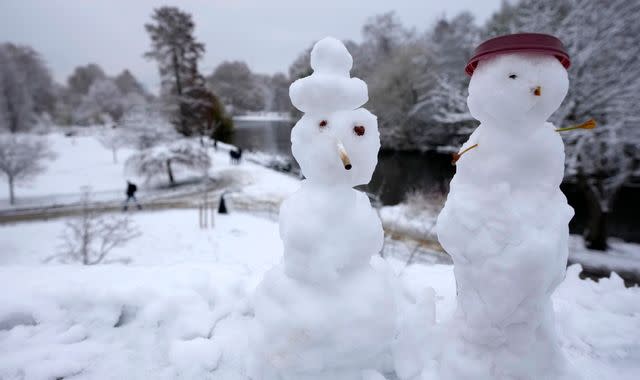Why is it so cold, even though climate change is making the world hotter?

In case you hadn't noticed, it's cold at the moment in the UK. Very cold.
Parts of the UK are blanketed in snow as temperatures hover only a few degrees above freezing in many places.
And the cold snap is sticking around, with low temperatures forecast into next week.
Overnight, the mercury is even dropping as low as -15°C in isolated spots.
But many are wondering how it can be cold enough for snow - and for the snow to last - even though the planet is heating up.
Is the UK's climate already hotter?
The UK is already about 1°C hotter on average than in the 1950s. That shows in the fact we are getting less frost and snow.
Cold spells are also becoming shorter and less frequent and they are on track to decrease further still. Winters will also get warmer.
"Although becoming less frequent, days below freezing, known as ice days, will still be possible in the future, although they will be rarer," said Met Office climate scientist, Professor Lizzie Kendon.
Why is it so cold in spite of climate change?
Global heating is a long-term trend, but that does not dictate that each year is warmer than last.
There can still be fluctuations, and the UK's weather will remain characteristically variable, Prof. Kendon added.
We will still have some unusually cold days and nights, even as the climate heats up.
Although UK temperatures are below average at the moment, they are not that unusual for this time of year, the Met Office has confirmed.
And climate breakdown is going to bring more frequent and intense weather extremes to the UK, according to scientists.
Cold wind from the Arctic can also contribute to colder weather, as it is at the moment.
Watch the Daily Climate Show at 3.30pm Monday to Friday, and The Climate Show with Tom Heap on Saturday and Sunday at 3.30pm and 7.30pm.
All on Sky News, on the Sky News website and app, on YouTube and Twitter.
The show investigates how global warming is changing our landscape and highlights solutions to the crisis.

 Yahoo News
Yahoo News 
